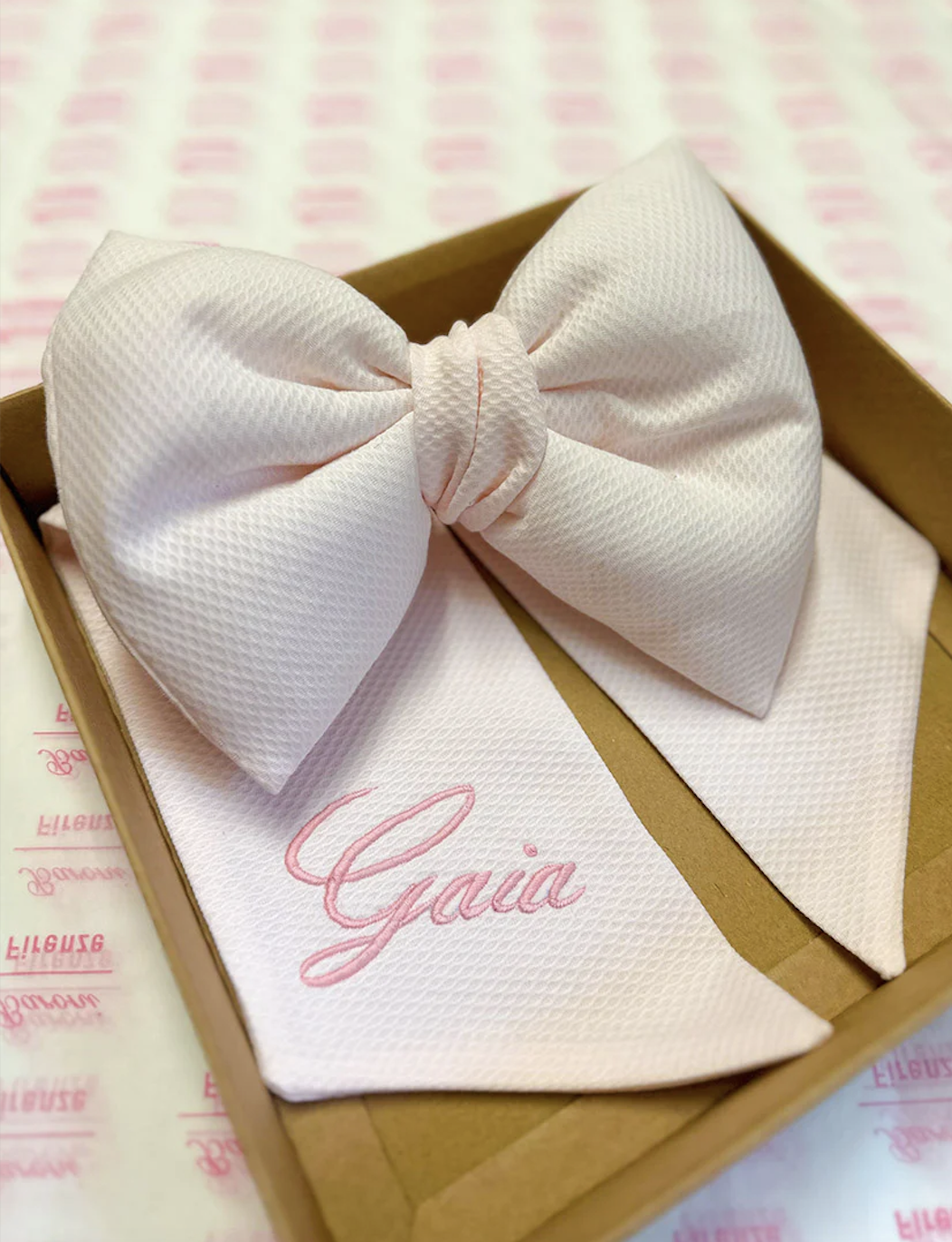Pregnancy in Italy: Traditions, superstitions, and old wives' tales
Traditional Fiocco used on the front doors of new parents homes to announce the new arrival.
Pic credit Baroni Firenze
Pregnancy in Italy: Traditions, superstitions, and old wives’ tales
There is nothing more exciting than the arrival of a new baby. And if you’ve been to Italy, you know that the country’s culture welcomes children of all ages with big open arms. Although Italy’s birth rate is one of the lowest in the world (and declining), the Boot doesn’t lack customs, traditions, and superstitions when a little bundle of joy is on the way.
Below, we talk about some of our favorite quirky traditions, along with some that may surprise you!
Baby Names
In Italy, naming a baby is not always as simple as finding a quirky name the parents like. Often, a name is influenced by religious, cultural, and generational traditions. First, it is common for babies to be given the first name of their grandparents or even great-grandparents, creating continuity within the family. However, present-day families are pushing the boundaries of naming and going against the “norm” for a more modern approach and embracing international flair. Since Italy is a catholic country, most names are often the names of saints. For example, Francesco is connected to San Francesco (Saint Francis) and Maria to Santa Maria (Saint Mary).
In some countries, giving the new child a middle name or a second name is the norm. However, in Italy, second or middle names are not very common. Although legally, children are allowed to bear three names at birth (two names and a surname or one name and two surnames).
Baby Showers & Gifting
Although gender reveals are catching on thanks to mainstream Western culture, baby showers are still very rare to nonexistent in Italy. Gifting is typically reserved until the mother's last month or two of pregnancy and more often until the baby is born. It’s considered bad luck to give the baby too many gifts before its birth, which ties back to the idea that too much celebration or material goods before the child’s arrival can jinx the baby’s health or safe arrival into the world.
Chiama Angeli
Gifting to the mother-to-be on the other hand is not part of a gravidanza superstition. In fact, an expecting mother is often gifted a necklace called chiama angeli, a long pendant necklace with a small bell inside that rests on the mother’s growing belly. Traditionally, the sound produced by the pendant serves to "call" the guardian angel to protect the wearer. It is often believed that the quiet sound of the chiming bells calms the baby in the womb.
Tradition holds that the mother should wear the necklace up until the birth of the child for protection and good energy.
Pregnancy cravings
Pregnancy cravings are taken very seriously. Italians believe any craving a pregnant woman has should be satisfied immediately. Often, family members avoid talking about food in front of the pregnant mother to avoid unexpected cravings she might not have had before. If the soon-to-be mamma doesn’t eat everything she desires, the Italian wives' tale states that the baby will be born with a birth mark, signaling that her cravings were not met.
Caffeine, Wine, & More
Pregnant women very much still enjoy a morning cappuccino under the Tuscan sun or a bitter shot of espresso at the bar. That being said, caffeine is enjoyed in moderation. The cultural attitude in Italy towards drinking alcohol during pregnancy can be seen as more relaxed compared to other countries. Historically, many Italians (especially older generations) may have felt it was acceptable for pregnant women to consume small amounts of wine, especially table wine or lighter wines.
***Each pregnancy is different and by no means should these observations be taken as medical advice.***
Fiocco Nascita
Once the bambino/a is born, a fiocco nascita is hung outside the house, over the balcony, or outside the apartment building’s main door to signal the arrival of the family’s newest member to neighbors and community members. A fiocco nascita is a birth ribbon, often embellished with the child’s name, and can include decorative embellishments like hearts, teddy bears, and shooting stars.
Bomboniere Nascita
Once the baby is home and settling into life, gifts and visitors are welcomed into the family’s home with open arms. Traditionally, the new neomamma and neopapà prepare offerings, known as bomboniere nascita, to give to and thank their visitors for celebrating the arrival of the baby. Bomboniere nascita are essentially small gifts, usually delicately packaged sugar-coated almonds, that are a traditional gesture.
These bomboniere are also prepared and given to guests during major milestones of an Italian family’s life, like a baptism, communion, wedding, and more.
